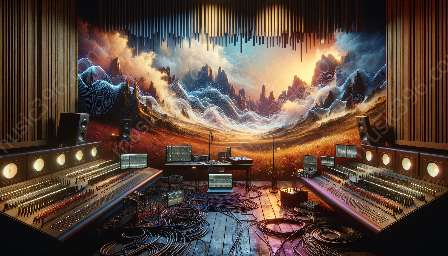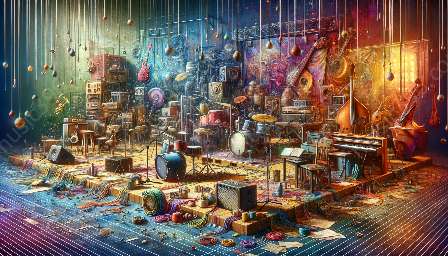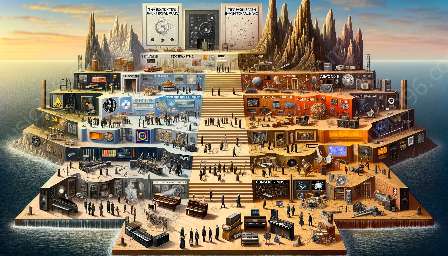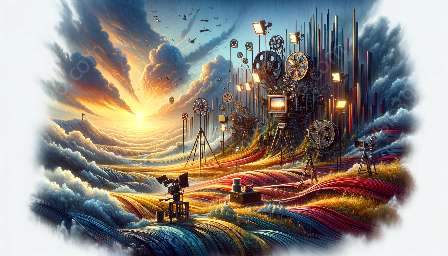Experimental music is a genre that has always pushed the boundaries of traditional musical concepts and compositions. As artists seek to innovate and experiment in their creations, ethical considerations play a crucial role in the process. This exploration delves into the multifaceted ethical aspects integral to the creation of experimental music, intersecting with key movements in the genre and its association with experimental and industrial music.
Understanding Experimental Music
To comprehensively address the ethical considerations in the creation of experimental music, a contextual understanding of the genre and its key movements is essential. Experimental music is characterized by its departure from conventional musical norms, embracing innovative techniques, unconventional sounds, and non-traditional structures. It places a premium on creativity, often delving into uncharted territories of sonic expression. This inherent experimental nature of the music engenders a complex set of ethical questions, ranging from the treatment of sources of sounds to the impact on audiences and wider societal implications.
Ethical Considerations in Experimental Music Creation
When experimental musicians embark on the creation of new sonic experiences, they encounter a myriad of ethical considerations that prompt reflection and assessment. The following aspects encapsulate the ethical complexities inherent in the creation of experimental music:
- 1. Treatment of Sound Sources: Experimental musicians often manipulate and sample diverse sound sources, raising questions about the ethical use of these materials. Respect for intellectual property rights, cultural sensitivity, and responsible sampling practices emerge as ethical imperatives in this context.
- 2. Audience Impact: The experimental nature of the music leads to varied and sometimes unconventional sonic experiences. Ethical considerations arise concerning the potential impact of such experiences on audiences, necessitating contemplation of potential unexpected reactions and the responsibility of the artist.
- 3. Societal and Cultural Representation: Ethical dilemmas surface in the portrayal and representation of societal and cultural elements within experimental music. Issues of appropriation, misrepresentation, and cultural sensitivity require careful consideration to maintain ethical standards and respectful engagement.
Key Movements in Experimental Music
Several key movements have shaped the trajectory of experimental music, each contributing unique factors to the ethical considerations associated with the genre:
- a. Avant-Garde Movement: The avant-garde movement challenged traditional artistic boundaries, influencing experimental music’s inclination toward radical innovation. Ethical inquiries into the impact of radical experimentation and boundary-pushing are entwined with this movement.
- b. Fluxus Movement: The Fluxus movement emphasized intermedia and interdisciplinary forms of artistic expression, raising ethical queries regarding the fusion of diverse artistic elements and its implications for experimental music.
- c. Minimalism: Minimalism in experimental music introduced ethical deliberations about the simplicity, repetition, and tonal textures in compositions, prompting contemplation into the artistic impact and audience engagement.
Experimental and Industrial Music
The intersection of experimental music with industrial music presents additional ethical dimensions. Industrial music, with its focus on harsh mechanical sounds and themes, engenders ethical concerns related to the portrayal of industrialized societies, the impact on mental well-being, and the responsible representation of industrial aesthetics.
Conclusion
The creation of experimental music is imbued with ethical considerations that traverse diverse aspects of artistic expression, societal representation, and audience impact. As the genre continues to evolve and intersect with various movements, artists must navigate these ethical challenges with a thoughtful and responsible approach, ensuring the ethical integrity of their creations while pushing the boundaries of sonic innovation.































